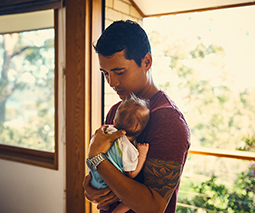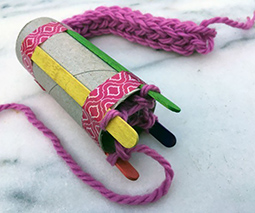Can you afford a baby? How to prepare to lose your income for a year

Pregnancy is an exciting time for couples, but many worry about being able to afford a baby. Some couples are even choosing to put off starting a family because of the expense that comes with having a baby. But if you’re pregnant right now, fear not. While it takes some adjustment, having a baby and spending a year at home parenting isn’t something that is necessarily off-limits to you. It just takes some forward thinking and plenty of planning.
Money Expert and host of the ‘Sort Your Money Out’ podcast, Glen James, agrees that having a baby is costly but couples can prepare for this in a number of ways before baby arrives. “It’s fair to say to expect the unexpected,” says Glen. “Like any BIG life event, having a baby can be like a bomb dropping on your finances. But we know it’s coming, so we simply must get ready.”
You can afford to have a baby
According to Glen, having a baby can still be affordable for many of us who think otherwise, if we take the time to think about our finances early on and create some new positive habits. Glen suggests a number of things parents-to-be can do before a baby arrives that will help them prepare to lose an income for a year.
Are you ready for some new money habits and priority shifts? Let’s get planning …
Start living on one income NOW
First up, Glen suggests you and your partner aim to start living on a reduced income now rather than wait until baby arrives and you’re forced to adjust. “Like anything in life, it’s good to change before you have to. Look at setting up your personal budget based on what the figures may be once you are down to one income,” Glen says, adding that excess income should then be put aside into a cash buffer.
When it comes to your new budget, sit down with your partner and list all your monthly costs, figuring out along the way which items you can either cut out from your budget or trim significantly. This might be hard at first, but the new money habits are going to help you in the long run by giving you more time at home with your baby. “The money things we deal with are less of an issue than the habits themselves. So, we need to change our habits before we are forced to due to a reduced income,” says Glen.
Some ways to trim your costs include:
- Cut down on lunch costs by making your own
- Downgrade your Foxtel, broadband or decide to get rid of one your subscriptions (e.g. Netflix or Stan)
- Go through your weekly shopping list and aim to shave $50-100 a week off it by shopping more strategically and planning meals
- Check your energy bill to make sure you have the best plan with your provider
- Reduce dining out and other entertainment expenses
- Review your insurances and make sure you have the best deals
Start building your cash buffer
Putting regular amounts of money aside during your pregnancy can go into a cash savings account or buffer, which is your living expenses for when baby arrives, and will also become your ‘just-in-case fund’. How much you decide you need is up to you, says Glen. “The correct amount for a cash buffer is: as much as possible. If you’re fortunate enough to have cash equivalent to a year’s worth of living expenses, that’s probably more than enough. But there is no wrong amount here.”
Don’t have lots of money available? There’s ways to start changing that now, and seeking financial advice might help you uncover some options you didn’t realise you had. “For those who need extra help getting a cash buffer you could consider reducing any pre-tax salary sacrifice contributions to super or moving your mortgage to interest only for a period of time,” says Glen. Get in touch with your own financial advisor to find out more about these options.
Press pause on big financial goals
Paying off debt and saving for big-ticket items may need to go on the back-burner while you’re working towards your cash buffer. For example, there’s nothing wrong with switching to minimum payments on your credit card for a while, and by putting off purchasing the brand new car or saving for other big-ticket items, you could use the extra cash to add to your buffer. Once bub is home and healthy, says Glen, you can figure out what you can afford and get back to paying attention to your financial goals.
Rethink big ticket items
One of the biggest financial mistakes parents-to-be make before baby arrives is thinking they have to buy big-ticket items like a brand new car, or premium baby products, says Glen. “Things do not need to be brand new to be good quality. Gumtree, people! This includes cars!”
That’s not to say that every baby item has to be second-hand, or the cheapest version. “Make the call on one premium brand item and settle on the other things,” says Glen. “For example, if you are a runner – the premium name brand “runner pram” would be a better trade off to the premium bassinet.” In other words, pay the money for the really important things, but be prepared to spend less on other items that aren’t so important to you. Your baby won’t think any less of you if your cot is pre-loved!
Bring in more money while you can
Can you or your partner take on more work to bring in some more cash? Consider whether either of you can work overtime, or on weekends for a few months, for example. It might seem like hard work and no fun now, but think of it as paying for your baby’s nursery or settling a big bill when you’re on maternity leave and on a tight budget. Another way to bring in some extra cash is to look at what you can sell, so check your storage areas for items you’d long forgotten about that you could make some money from.
Check your entitlements
It goes without saying, but be sure to check with your employer/HR department about whether you’re entitled to maternity leave pay, holiday pay or long service leave, all of which can help lengthen the time you can afford to take off work. You should also see what government assistance you’re entitled to.
Once you get through the pregnant months and you have some healthy new financial habits on board, you’ll find life with a baby can actually be pretty cheap. They don’t need much to keep them entertained and if you’re breastfeeding, food is completely free for the first six months. In fact, when they’re born, babies need little more than YOU to make life okay for them, and you’ll soon feel the same.
It will be around this point that you realise the big secret so many of us parents soon learn: babies might cost a lot but they’ll also make you feel like the richest person in the world.









